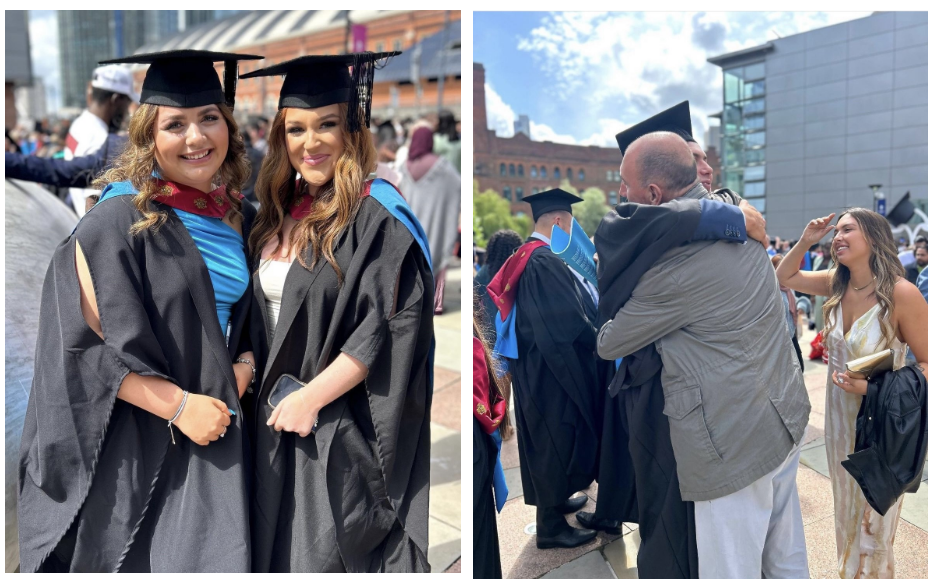Opinion | Thursday, 7th May 2020
Coronavirus: Celebrating VE Day in the midst of the COVID-19 pandemic
Historian Dr Sam Edwards on the lessons we can learn from 75 years ago

by Dr Sam Edwards, Senior Lecturer in History at Manchester Metropolitan University.
A defining feature of how the impact of Coronavirus is being measured in many societies has involved invoking memories of the 20th century’s two global wars.
Back in April, for instance, the US Surgeon-General compared the anticipated virus peak to Pearl Harbor (an analogy similarly just deployed by President Trump), whilst at least one US politician has compared the lack of PPE for healthcare workers with sending soldiers to land on D-Day without guns.
In Britain, the Prime Minister has been keen to strike a suitably Churchillian note, and elsewhere memories of the ‘people’s war’ and calls for a ‘Blitz Spirit’ have involved everyone from Dame Vera Lynn, to the Queen, to the nation’s new found hero, Second World War veteran ‘Captain Tom’, a man whose capacity for stoic and good natured endurance has touched the hearts of many.
Meanwhile, healthcare workers across the world have been re-defined, rightly, as an army heroically fighting on the ‘frontline’, with their ‘fallen’ comrades recently mourned in Britain with a national two-minute silence akin to that commonly associated with Remembrance Sunday.
The list could go on: in France, the crisis has provoked difficult memories of the wartime occupation (due to all the restrictions); in Australia and New Zealand a coincidence of timing resulted in this year’s ANZAC Day being commemorated in homes and driveways; even in Germany Chancellor Merkel has said that the crisis represents the greatest challenge since the 1939-45 war.
Useful precendents
On the one hand, all of this makes sense – various cultures and societies turning to history to find precedents and ways of making sense of the moment.
This is made still more understandable by the recent attention both conflicts have enjoyed following the recent centennial of the First World War as well as the current cycle of 75th anniversaries connected to the Second.
And of course there is much that is comforting and reassuring here. We’ve been in this current crisis for six weeks; our predecessors endured the Second World War for six years. To invoke such memories is, at root, to say to ourselves that we have done this before, and that we can do it again.
In Britain, the Prime Minister has been keen to strike a suitably Churchillian note, and elsewhere memories of the ‘people’s war’ and calls for a ‘Blitz Spirit’ have involved everyone from Dame Vera Lynn, to the Queen, to the nation’s new found hero, Second World War veteran ‘Captain Tom’
But invoking all this war memory and nostalgia also has (potentially) problematic implications that we should be careful to acknowledge.
For the two conflicts currently trawled for meaning and precedent had – because of their very nature – definitive end points: the Armistice (November 11), and VE Day (May 8). At least for the foreseeable future, the current crisis does not, and so the 75th anniversary of VE Day needs to be handled carefully.
As we fondly recall all the street parties and celebrations, we should be mindful not to assume that our own moment of ‘victory’ will be similarly final and definitive, or even that it’s just around the corner. If Churchill must be invoked, the message for the moment should perhaps be that we are near the ‘end of the beginning’ rather than approaching the beginning of the end.
Limits to comparisons
The other potentially problematic implication is for the world into which we will ultimately emerge (soon, one hopes). For one of the challenging legacies of both world wars was that each bequeathed a society separated by experience. Those who fought on the ‘frontlines’ often struggled to understand those who had not.
As we fondly recall all the street parties and celebrations, we should be mindful not to assume that our own moment of ‘victory’ will be similarly final and definitive, or even that it’s just around the corner.
As I write these words I am profoundly aware that for all the challenges and frustrations of lockdown, my experience of this crisis is very different to that of those doctors, nurses, porters, paramedics, and carers ‘fighting the battle’ just a mile from my front door. When the ‘battle’ is done and the ‘war’ is won, we will need to find a way to come to terms with this; we will need to find ways to understand, recognise and support those who are being asked to give all that they are and all that they have.
So by all means let’s celebrate VE Day, but as we do let’s also be careful not to confuse or conflate our current experience with that of 75 years ago.
There are parallels to be sure, and lessons to be learned. But COVID-19 is not a country or a combatant, and it will ultimately be countered by a global (and ongoing) public health endeavour rather than the short-term militarisation of the nation state.
So by all means let’s celebrate VE Day, but as we do let’s also be careful not to confuse or conflate our current experience with that of 75 years ago.
And as many nations mobilise all their resources to ‘fight’ the pandemic, we might also keep in mind that, just as the people of 1918 and 1945 discovered, even once the victory is won important work will remain to be done. We will need to mourn and memorialise, repair and rebuild. We will need to win the peace.
At least for this latter task we might very usefully recall not the war of 75 years ago, but its legacy. For after enduring six years of global conflict Britons determined to make their world better, fairer. They created the NHS, the very organisation whose ‘soldiers’ now do daily ‘battle’ on our behalf.
Here, certainly, is a legacy of the ‘people’s war’ to recall fondly, one for which we’re all profoundly grateful.




